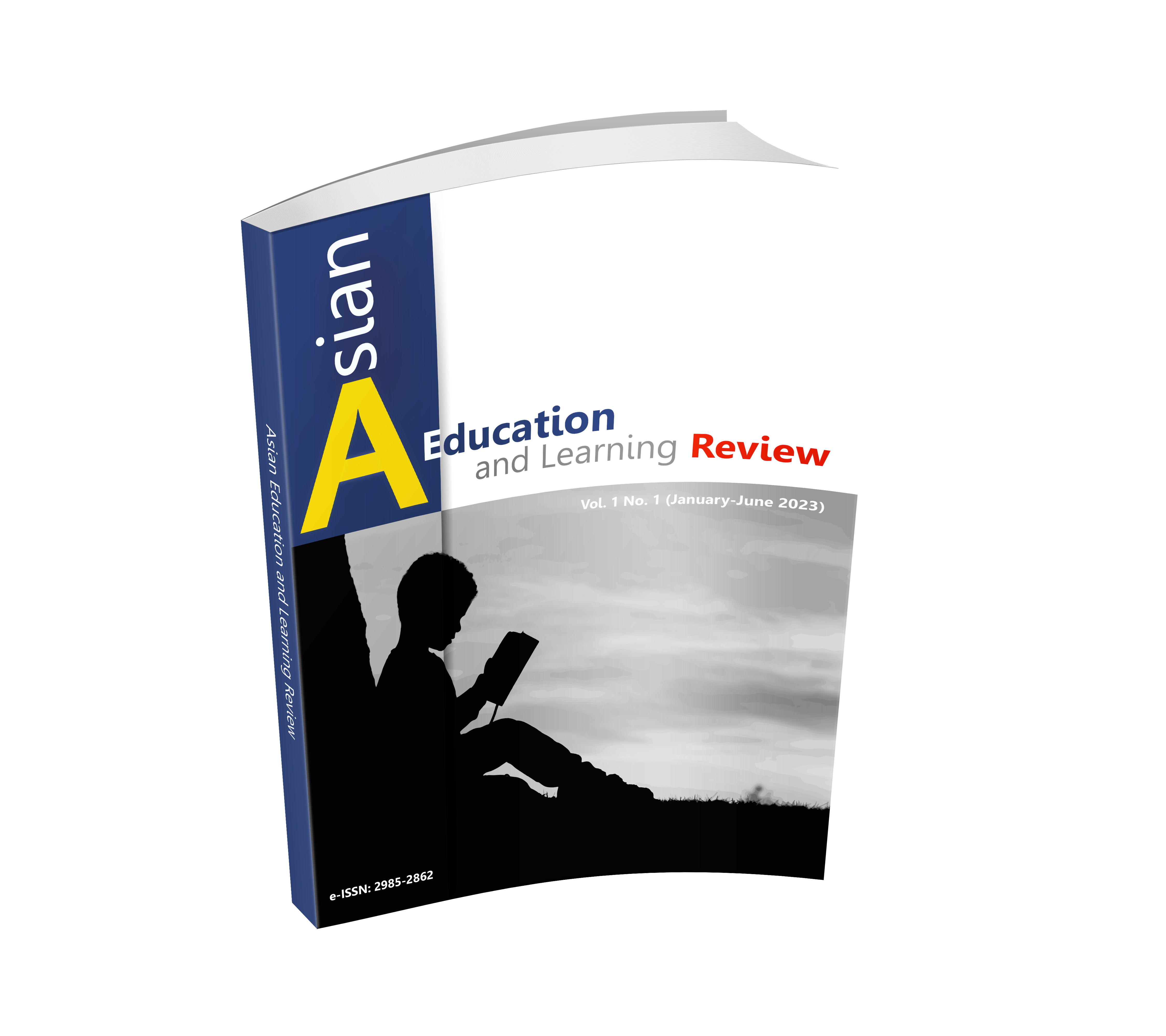THE ROLE OF FOSTER FAMILY IN CORRECTING SOCIAL DEVELOPMENT DEFICIT: A CASE REPORT OF AN ORPHANED TEENAGER
DOI:
https://doi.org/10.14456/aelr.2023.4Keywords:
Foster Family, Social Development Deficit, Orphaned Teenager, Case StudyAbstract
Parenting styles substantially affect children’s behavior. Uninvolved parenting style can extensively impact children’s development progress. This case study aims to investigate the role of a foster family in promoting social development and correcting the deficits of an adopted child from Uninvolved parenting care. The study used qualitative research methods. Four research tools were used, including a series of interviews and questionnaires for pre-adopted and after 4 years of adoption, both from the foster family and adopted child side. The sample group consists of 1 adopted child and 2 foster family members. The result shows that the foster family significantly improves the social development of the child raised neglected during their early childhood through their 4 training approaches. These approaches include strengthening relationships, encouraging empathy with others, promoting assertiveness and emphasizing respect for rules and social regulations. By strengthening the relationships, this 6-year-old child who showed no trust and isolated himself from unfamiliar persons can gradually build relationships with others and adapt to his peer groups. Learning empathy for others changes him from being a possessive child to being a shared with empathy child. The role of assertiveness training encourages him to speak out, be confident to express his feelings and even offer to help others. Teaching him to respect social rules and regulations made him aware of discipline and grow up happily as part of society.
Downloads
References
American Addiction Centers. (2022). Children of Addicted Parents Guide: How to Deal with Addict Parents. Retrieved from https://americanaddictioncenters.org/rehab-guide/guide-for-children.
Boonpok, W. (2015). Childcare monitoring according to minimum childcare standards of host families: a case study of Burirum provincial social development and welfare office. Master’s Thesis, Thammasat University.
Boonsupa, C. (2021). Reinforcement and punishment (BF Skinner). Retrieved from https://sircr.blogspot.com/2021/05/bfskinner.html#:~:text=% 22.
Center for the Protection of Children's Rights Foundation. (2022). Infographic Leaving children is not good 2. Retrieved from www.thaichildrights.org/articles/infographic-neglect2/.
Center on the Developing Child at Harvard University. (2016). 8 Things to Remember about Child Development. Retrieved from https://developingchild.harvard.edu/resources/8-things-remember-child-development/.
Cherry, K. (2023). What Is Attachment Theory? The Importance of Early Emotional Bonds. Retrieved from www.verywellmind.com/what-is-attachment-theory-2795337.
Chewae, A. (2021). Strengthening family relationships through folk play activities in the three southern border provinces. Journal of Social Science and Humanities Research in Asia, 27(3), 111-144.
Dhaliwal, R. (2018). Parental neglect and its effect. Retrieved from www.whiteswanfoundation.org/life-stages/childhood/uninvolved-and-neglectful-parenting.
Haward Graduate School of Education in Human Development. (2022). 7 Tips for Raising Caring Kids. Retrieved from https://mcc.gse.harvard.edu/resources-for-families/7-tips-raising-caring-kids.
Jaicharoen, P. (2009). A Study of the Relationship between Parenting and Disciplinary Behaviors of Students at Demonstration School of Srinakharinwirot University Prasanmit (Primary). Research Report, Srinakharinwirot University.
Kanchanakorn, S. (2021). Erik Erikson's Psychosocial Theory. Retrieved from www.youdee.redcross.or.th/post/ทฤษฎี-จิตส�-��งคม�-��อ-ง-erik-erikson.
Kaochim, P. (2008). Documentation of teaching subject JorT 221 Developmental Psychology. Retrieved from http://ils.swu.ac.th:8991/exlibris/aleph/a22_1/apache_media/NCQFCAHL2PRATI8NTCF41BHJBUC7U3.pdf.
Limtrakul, N. (2020). How to teach how to share. Retrieved from www.phyathai.com/article_detail/?branch=PYT2.
Lovecarestation. (2016). What is a foster family?. Retrieved from www.lovecarestation.com/%E0%B8%84%E0%B8%A3%E0%B8%AD%E0%B8%9A%E0%B8%84%E0%B8.%A3%E0%B8%B1%E0%B8%A7%E0%B8%AD%E0%B8%B8%E0%B8%9B%E0%B8%96%E0%B8%B1%E0%B8%A1 %E0%B8%9B%E0%B9%8C/.
Matayarak, P., & Chaiphan, K. (2013). Effects of the group process program for the development of empathy among adolescents. Journal of Education Khon Kaen University (Graduate Studies Research), 7(1), 104-113.
Mcleod, S. (2023). Freud’s Psychosexual Theory and 5 Stages of Human Development. Retrieved from www.simplypsychology.org/psychosexual.html.
Meesomsarn, K. (2001). A Comparison of the Emotional Intelligence of Young Adolescents Who Have Been Raised in Different Forms According to Their Perceptions. Master’s Thesis, Chulalongkorn University.
Ngammana, D. (1975). Feelings of responsibility. curiosity and the achievement motivation of students who received neglectful vs. over-empathic upbringing. Master’s Thesis, Srinakharinwirot University.
Niyomthat, B. (2021). Organizing singing, playing, and dancing activities to enhance the self-expression of children and youth in the Chao Pho Somboon Shrine community 54. Lawasri Journal of Thepsatri Rajabhat University, 5(1), 17-26.
Rakkarn, J. (2018). Chapter 3 Concepts and Theories Related to Mental Health and Psychiatric Nursing. Retrieved from https://elnurse.ssru.ac.th/jiraporn_ra/pluginfile.php/27/block_html/content/%8A.pdf.
Ratanathong, S. (2013). Organizing learning experiences based on theory and learning principles. Retrieved from https://ams.kku.ac.th/aalearn/resource/edoc/tech/56web/9learn_exp56.pdf.
Right for Education Foundation. (2022). The Effects of Uninvolved Parents. Retrieved from https://rightforeducation.org/2022/12/31/the-effects-of-uninvolved-parents/.
Simpson, J., & Rholes, S. (2010). Attachment and relationships: Milestones and future directions. Journal of Social and Personal Relationships, 27(2), 173-180.
Sukadaecha, R. (2020). A Child rearing of Thai families: A Systematic Integrated Literature Reviews. Journal of Nursing Science and Health, 43(1), 1-9.
Yanwaree, P. (2002). The influence of relationship in marriage, obtained parenting characteristics and history of separation from important people affect maternity care behavior and maternal litendency of parenting behavior. Master’s Thesis, Silpakorn University.

Downloads
Published
How to Cite
Issue
Section
License
Copyright (c) 2023 Authors

This work is licensed under a Creative Commons Attribution-NonCommercial-NoDerivatives 4.0 International License.






.png)


